One of my favorite things about curating compilation albums for A Thousand Arms has been the research process. Countless hours scouring Bandcamp pulling captivating needles out of mostly uninspiring haystacks could turn one cynical, but for me it has only affirmed what I had already suspected: post-rock is a genre that knows no boundaries, that suffers no language barriers. One of the accidental strokes of brilliance we came up with for the “Open Language” and “Hemispheres” comps was the idea that we should divide the compilations regionally. This forced me to have to search specifically across each continent and every corner of the globe, no matter how barren it might seem to the naked eye (ear?). I have yet to crack Africa (aside from South Africa and Egypt there doesn’t seem to be any culture of post-rock music as we know it, but I will no doubt continue digging), but by far my favorite challenge has been South America. Particularly in Brazil, Argentina and Chile there is a vibrant and unique collection of bands that deserve the attention of the world but have very little representation outside of their continent.
In the past few years dunk!festival has sought to bridge this divide, having brought over bands like Labirinto, tortuganonima, La ciencia simple and Baikonur (Sistemas Inestibles and Osorezan have been announced for this year’s festival as well). But there is still so much to explore there, and it has brought me great pleasure to try and help bring some of these bands to the light. There is a unique blend of sounds that comprise the South American scene. While there is undoubtedly influence from traditional post-rock, there is even more so an infusion of math rock stylings and a heavy focus on crafting grooves. The region’s long love of metal and hardcore is also clearly audible in the compositional choices of many of these bands. Having made numerous connections with artists from South American countries during the past few years with A Thousand Arms, I felt that it was time to collect them all into one space and let them speak for themselves. We hope you enjoy this comprehensive look into what may be the most underrated region for post-rock in the world.
ARGENTINA:
Antorchas (Buenos Aires)
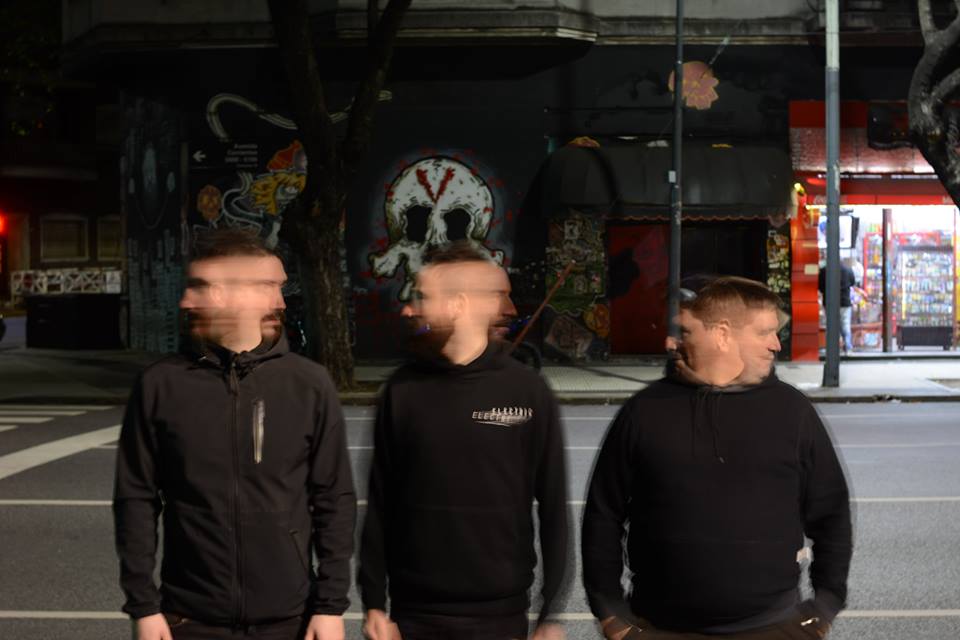
Although they have recently entered a period of hiatus only two albums into their run, Antorchas undoubtedly has been composing some of the most intriguing music to come out of this scene in recent years. Heavy on prog elements and overflowing with muscular riffs and engaging melodies, their most recent effort Aphelion is an underrated gem. This is a legit power trio that sounds much larger than their numbers may suggest, boosted by strong production values.
Nicolas Vallak, bassist for Antorchas, took some time to answer a few questions for us.
Heavy Blog Is Heavy: What have been some of the inspirations for Antorchas’ music? Do you find equal influence from bands from other parts of the world that have flourished globally in post-rock as you do from bands native to Argentina/South America? Where do you find yourself primarily drawing from when you’re composing?
Nicolás Vallak: I believe inspiration in post rock and post metal musicians comes from the same background. Feelings, emotions. And the delicate passage from one to another. I believe that geographical areas are, let’s just say nutritious for it, at least in climatological terms. I guess the Caribbean is more accurate for happier and colorful rhythms, and on the other hand, northern American countries and northern Europe are colder and darker, closer to post rock sounds. For instance, we don’t live in black and white weather in Buenos Aires, but I might imagine myself in those snowy places, or wooded areas looking for inspiration. In the end, it always comes from inside emotions, combined with these darker images.
HBIH: Can you tell us a bit about what it is like being a post-rock band in Argentina? Do you find that there is a strong amount of support for the style you’re playing? Also, every band in this piece hails from either Argentina, Brazil or Chile. Why do you think that is? Or are the rest of us in other parts of the world missing out on a lot of what is happening musically in South America?
NV: Hard is the best word to describe it. Many reasons involve that word. Economic issues like instrument and equipment prices are a big impact. I can tell this involves all kinds of genres, not only Post Rock. It is a steeper slope for a South American, who pays for the same instrument at least 60% more than in the northern hemisphere. Also, the recording process takes a huge amount of resources. And the other half is that the genre is not massive. An example of this: we received Rosetta three weeks ago. Only one show, and they only got 60 people there. Economics again must have played an important role, influenced by the ticket price ($20 US). We are facing an economic crisis in the country. We used to have no more than a hundred people in the audience ever. And I know that’s a bit better in other countries. Chile is at the forefront of genre in this region. For instance, in the same tour, Rosetta played 4 shows. Nevertheless, I believe South American Post rock is up to the challenge, with the annual increase of bands in major genre festivals (Osorezan, Sistemas Inestables, Baikonur, La Bestia de Gevaudan). We have a growing number of excellent projects around. Even A Thousand Arms got some of it in their compilations on Bandcamp. Future is promising.
HBIH: You’ve recently revealed to me that the band is going on indefinite hiatus. Do you have anything new in the works with any other bands/projects?
NV: I am working with a good friend Gustavo Cirigliano (Epochal) and with drummer Germán Vivero (Prototipo) on a new project that I hope will see the light next September (we are in the composing period). It is called La Ira del Viento, mixing some post rock, with some post metal, some progressive, but mainly instrumental.
HBIH: South America seems to consistently be an unheralded region of the world in regard to music. What would be one thing you’d like people to know about the music scene there that they might not be aware of?
NV: We in Argentina had a very important place in Spanish-speaking rock in the period through the 70’s to the 90’s. Pappo Napolitano was referenced the best blues guitar player by B.B. King. We had huge bands like Soda Stereo, excellent musicians like Juan Alberto Spinetta, Charly García. The region is filled with excellent bands. People around the world just need to discover them.
Archipiélagos (Buenos Aires)
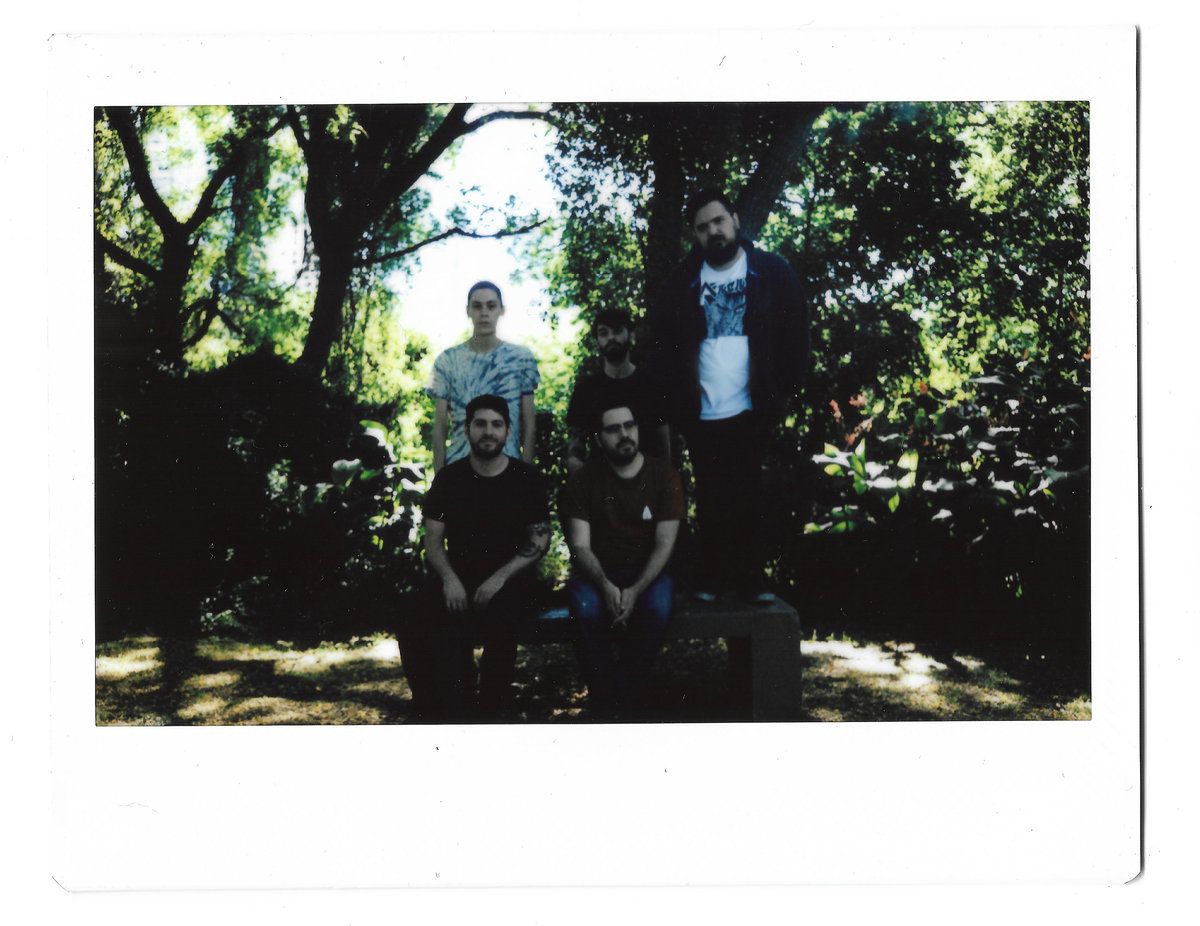
While they don’t have much output yet, Archipiélagos deserves mention here because their blend of math and emo is intoxicating and should be recognized on a much wider scale. Crisp production and heart-clutching melodies characterize the 11 songs they’ve released over two EPs and two splits. Sometimes math rock can tend to feel somewhat cold, but when it has an emotional through-line like this it has the power to be incredibly moving. They can pull of polyphonic melodies in a naturalistic manner, without sounding too showy or technically-focused, and the inclusion of vocals on their most recent EP guermantes proves to be a welcome layer indeed. Sebastian Ayala, drummer for archipielagos and the community manager for the anomalia collective, spoke to me about the scene.
Heavy Blog Is Heavy: From what I’ve been able to gather, Buenos Aires and Santiago are the two hotbeds of post-leaning music in South America. What is it like playing music in Buenos Aires, and how is it in terms of branching out to other areas? Do you find support when you travel, and find pockets of scenes in other cities/countries?
Sebastian Ayala: Buenos Aires has always been culturally rich, especially when it comes to music, and I think that really helped back when we were first starting, because back then there wasn’t another band playing this particular style of math rock, and people were receptive. What ultimately helped us a lot was a Facebook group called “MATH ROCK – ARGENTINA”, which served as a hub for local math rock fans (mostly living in Buenos Aires), and even though it started slowly, it grew to be a really cool community and helped a lot when it came to announcing new shows, introducing new people to the genre, and it even helped people in forming new bands.
To be honest, there’s not much of a math rock scene outside of BA (if you’re counting the outskirts, from which several bands hail). The next three biggest cities in the country (Rosario, Córdoba and Mendoza) have really few math rock bands, and since this is such a big country and the distances between cities are so big it makes it a bit difficult for us to plan a tour, but we’re definitely aiming for it. Regarding other countries, we recently toured Mexico for the first time and we played with some local math rock bands, people were super receptive and excited to have us there and we cannot wait to go back.
HBIH: You have strong math-rock influences in your music. Why do you think that genre specifically seems to resonate so strongly in South America (or at least in Argentina and Chile)?
SA: Argentina gave birth to many great prog rock bands in the 70s (most of which have a fanbase to this day), so even though math rock originates from punk and hardcore, I can see why a prog rock fan would feel attracted to this type of music, because one could notice certain similarities between the two (use of odd-time signatures, unconventional song structures, etc). My guess is that those bands serve as a point of departure for people looking to explore beyond those boundaries and look for more contemporary artists, and I think it’s also safe to say that a good amount of actual math rock bands are influenced by those bands as well (or prog rock in general for that matter).
HBIH: Anomalia seems to be doing something similar to LeRockPsicophonique in Chile, providing a collective and a support system for bands in these niche genres. Can you talk a little about what they’ve been able to accomplish for music in your region?
SA: I think anomalía’s role in the local math rock scene has been very important due to the nature of how it came about, starting a couple of years back as a series of concerts with one common denominator: to actively promote math rock bands. Eventually it became a collective of bands and over time we thought that it would be a good idea to establish ourselves as a record label too, so that we could showcase the local math rock talent and bring it together under one label, which was something that hasn’t been done before. I think it’s a very positive thing for bands and math rock fans alike to know that there was one particular label catering to their needs and offering actual representation for such a niche genre.
HBIH: What is something you’d like people to know about the music scene in Argentina that they might not be aware of?
SA: Argentina’s musical DNA has always been fascinating and very rich, spanning throughout several decades within a wide array of genres, and it’s been recognized, praised and consumed in all of Latin America to this day. So it’s only natural that, with the proliferation of the internet and widespread access to online music forums, streaming services, internet radios and so on, this would lead to the creation of new bands exploring pretty much every genre you can think of, making our current scene even richer and offering something for everybody. So, no matter which style of music you’re into, there’s probably at least one Argentinian band doing it, and doing it great.
blien vesne (La Plata)
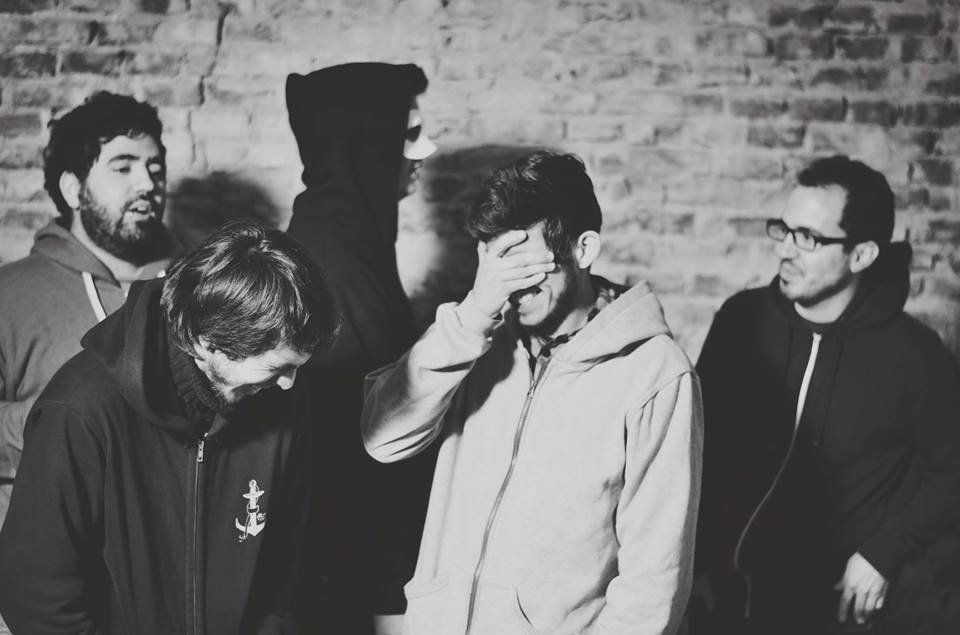
Featuring a collection of prolific musicians from the La Plata scene (keep an eye out further down this list), blien vesne is technically still active but on the back burner as members have spread themselves around the world from Argentina to Australia, and other projects have taken priority. They haven’t released new material since 2014 but enjoyed a successful run of strong releases from 2011 until then. “Aave,” the opening track on their debut Sobre la educacion de las Aguilas, boasts a theatricality that summons comparisons to everything from Mansun to Muse to Spiritualized, then before the halfway point it manages to settle down and achieve a sense of intimacy that seemingly exists on the other end of the spectrum, yet it maintains an impressive connectivity between ideas. What follows for the remainder of their discography runs such a wide gamut of various genre associations that it would be nearly impossible to cover in the space available here. It’s an impressive collection of music that is impactful and intelligently composed, and also makes great use of occasional vocals, something I’m ironically a sucker for when it comes to post-rock.
Here is Fran Sonur, who plays in blien vense, as well as two other bands covered later in this piece, emya and Para establecer un rio.
Heavy Blog Is Heavy: You seem to be heavily involved in all the music relevant to this piece that’s happening in La Plata. Can you tell us a little about what exactly your role is and what the scene there is like? Most of the Argentinian artists on this list are from Buenos Aires, but you’ve clearly been able to build something in your city.
Fran Sonur: La Plata is a small city, 45 minutes from Buenos Aires. It is small but at the same time is full of good music and a big music culture, so you can come to a gig any day during the week.
The main problem is we do not have many places to play, our government is closing a lot of them. So sometimes it is hard to find a good one.
But we love to play anywhere, we also travel to Buenos Aires a lot.
We have a healthy and nice DIY community of people, not just musicians. Every colour of the art- rainbow is covered.
HBIH: Where do you draw your inspirations from? On the surface, to an American it seems like it’s largely external influences like envy, La Dispute, Mogwai, etc. But I also feel like the rest of the world is missing out on a lot of what is happening in South America. How did you ultimately arrive at the sounds that listeners hear on your records?
FS: Of course, we like these bands, but always tried to make something fresh, we love emotional music, could be instrumental, a piece of piano or grindcore. I don’t care about genres, it is more about feelings and how it is impacted in our spirit.
HBIH: The members of blien vesne are now spread around the world, yet you still have some activity in terms of writing new music even though there is a considerable distance. What lies on the horizon for your musical projects and has living abroad changed your view of music or of performing in any way?
FS: We are more like a community than a band, so now the 3 projects are almost the same people playing so it’s a natural step for us, to fill the room into the bands with our friends.
About BV we’ve recorded some demos in the past, and we are always talking about giving them a decent sound and putting them online, but we don’t know.
HBIH: I love blien vesne’s mission statement: “desde el corazon hacia el cielo” (“from the heart to the sky”). Would you be willing to talk about that a bit? It’s a phrase that really resonates when it comes to post- music.
FS: Yes of course, it’s very simple. Means some guys playing their instruments trying to touch the heart of god. The bands have the same message, there is a savior who changed our life with his.
We were not religious people, but we had a life change when we met Jesus. And we are very open to talk about that with anybody who wants to know more.
D. I. E. T. R. I. C. H. (Buenos Aires)
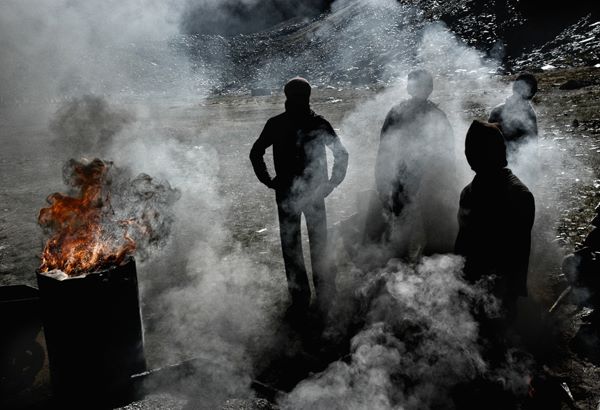
Undoubtedly one of the most intriguing bands on this list, D. I. E. T. R. I. C. H. features an intoxicating blend of post-rock melodies and textures with infectiously danceable beats. They seem to have achieved a well-regarded status in Argentina despite having only released one EP and one full-length between 2010-2014. Their Facebook page hasn’t been updated since 2016 so it appears they are not currently active, which is a shame because this band has the feel of something that could connect with a much wider audience if given the opportunity. Their self-titled debut features lengthier tracks more based in organic instrumentation, though their dedication to building strong grooves can be clearly detected. The 2014 LP P R O V I D E N C I A brings a lot of ideas that are hinted at on the S/T into full formation though. This record features a wider range of instrumentation, more electronic textures, and a mix of organic and synthetic percussion that gives each song a defined signature. The album can move from dreamy, piano-led uplift (“PASO DE LOS LIBRES”) to groove-laden space dance (“PANAMERICANA”) to majestic post-rock drama (“SEOUL 1988”) in mere moments, and every shift is entirely inspired. It is surprising and unfortunate indeed that P R O V I D E N C I A appears to be their swan song, but it’s one for the books nonetheless.
El lenguaje como obstaculo (Buenos Aires)
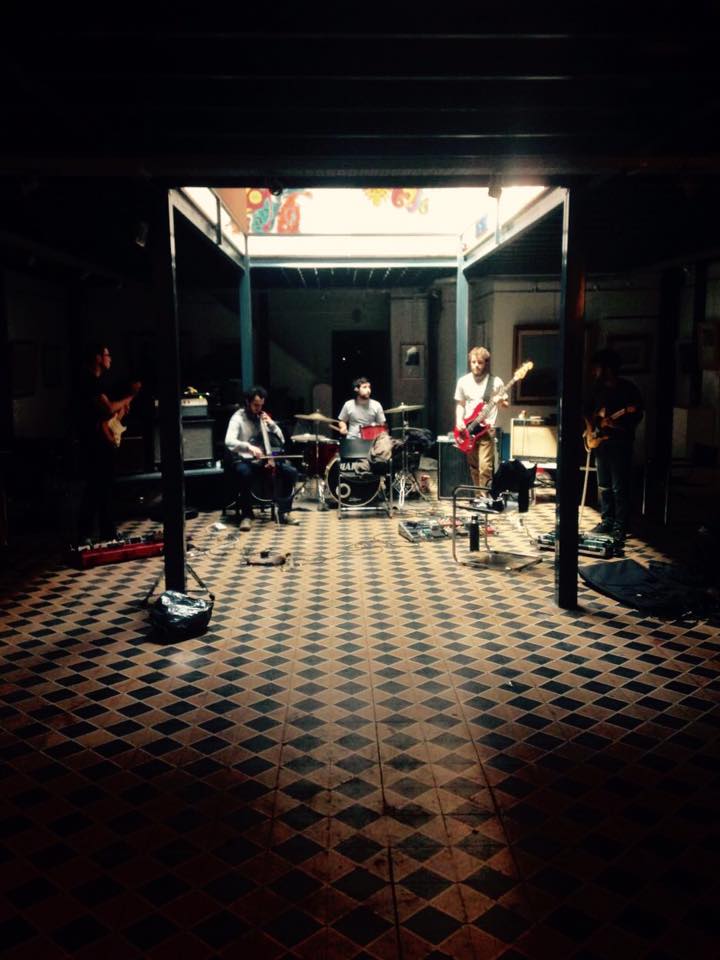
ELCO released only one album before breaking up, but it demands to be mentioned here. I is a masterful work of dark post-rock, exhibiting similarities to Godspeed You! Black Emperor, but somewhat more compact, and dismissing the stretches of ambience and incidental noise recordings. This is not to say there aren’t extended track lengths (most of the songs run at or past 10 minutes), but there’s a consistent focus throughout these compositions that is greatly appreciated. Adding to the revelation of this album is the fact that its creators were college aged at the time, ranging from 19-21 during the writing and recording process. It’s an impactful and mature album regardless of the experience level of the artists, but that added bit of information does make it even more impressive a work. The inclusion of cello, piano and trumpet add integral layers that build drama, and when this thing gets going it really hums. Most of the members have gone on to exciting new projects as well, so rather than mourn the dearth of output it’s best to just appreciate everything these musicians gave us as a collective before moving on to their subsequent endeavors.
Emya (La Plata)
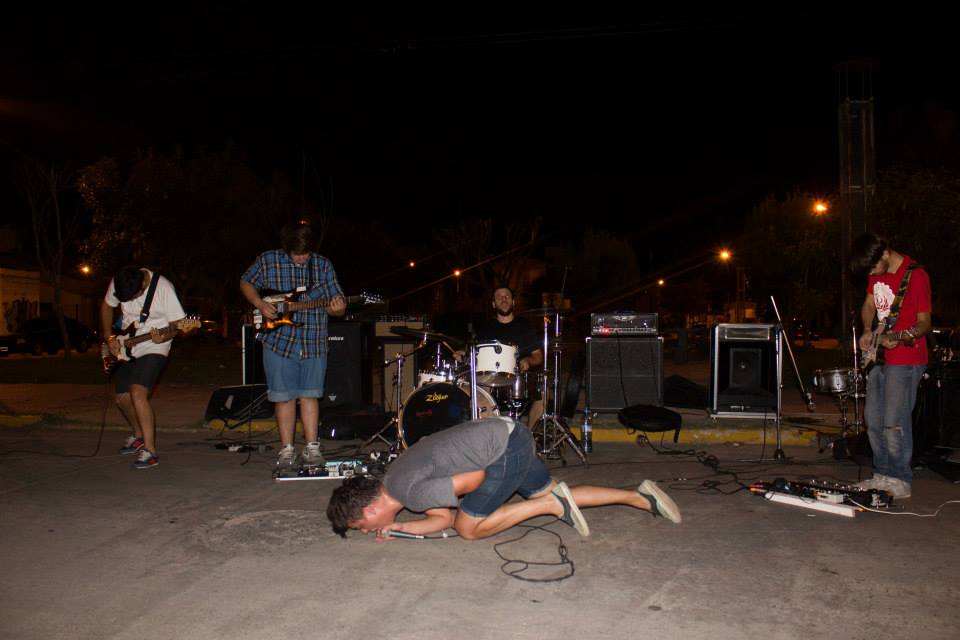
Well, THIS was certainly a discovery. This band arose from new research into blien vesne, as there is a crossover of members between both outfits. The subsequent exploration of their music was indeed eye-opening, as they present an intense, passionate, gorgeous approach to emotional hardcore akin to highly-regarded bands such as envy, La Dispute, Pianos Become the Teeth and Suis La Lune. It’s like experiencing the harsh realities of the battle and the euphoria of the victory in the same moment, crushing yet entirely uplifting. Soaring and expansive yet intimate and direct, totally immersive, all the things you want from this type of music.
Hungria (Temperley)

This loops ‘n beats math-rock duo is a Fecking Bahamas wet dream, hitting the sweet spot between slick lounge jazz, ‘90s Sega Genesis theme music and the soundtrack to a bunch of wacky clowns pouring out of a tiny car and wreaking havoc on the unsuspecting. It’s weird enough to draw you in and skillful enough to keep you around.
Kjjjjjjjjj (Buenos Aires)
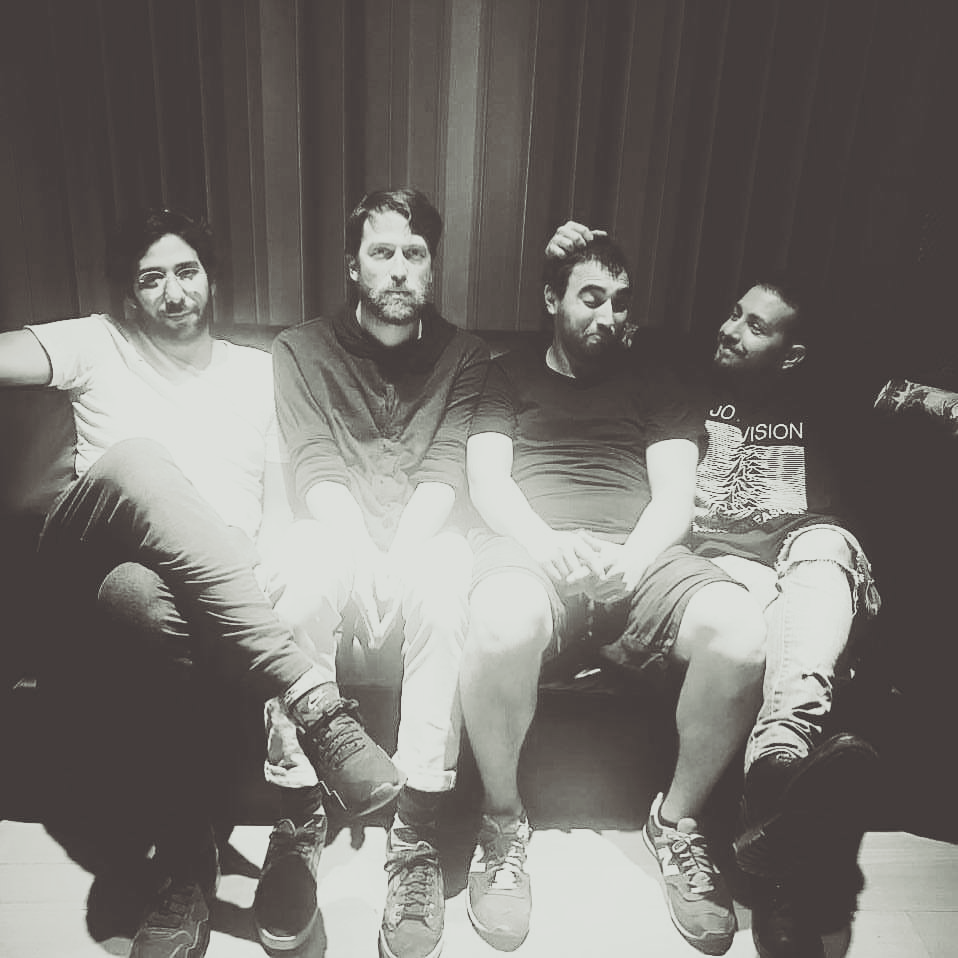
It may be difficult to read or write or say their name (it’s 9 j’s, by the way), but it’s very easy to get into what this band is doing. To date they have only a single LP, but it’s a doozy, and it made some waves outside of South America, landing them on a few compilation albums as well as Fecking Bahamas Top 50 of 2016 list. There are certainly math-rock elements at play here, but this is more of an open canvas type of band, as they fuse in post-rock, prog and post-hardcore as well (“Tsssssssss,” for instance, is mostly a straight up hard rock song, with a really big-sounding central guitar melody). If there is one obvious influence to be cited it’s early Fall of Troy, which is rarely a bad thing. There are plenty of riffs and grooves to soak in on their self-titled debut, and the pacing makes for a consistently enjoyable listen. Guitarist Mariano Membrives took the time to respond to some questions for us:
Heavy Blog Is Heavy: Kjjjjjjjjj made quite an impact right from the jump after releasing your debut, eventually headlining a festival within that first year. What has your overall experience been like playing in the scene in Buenos Aires and in Argentina/South America in general?
Mariano Membrives: The overall has been awesome. We had very good times and played many crazy places over the past three years. We never played other cities outside of Argentina… but in the big cities like Buenos Aires there seems to be many people interested in all kinds of music so there’s always going to be a small crowd out there no matter what you do.
HBIH: There’s a lot of math rock influence in your music, and that seems to be one of the primary niches genres that I continue to come across during my research. Why do you think that style seems to resonate so well in South America?
MM: I really wouldn’t know why, but yes, I guess it does resonate quite well. It might be that South America has a strong history of Punk and Hardcore and this math-rock thing going on is somehow attached to that. The whole concept of people going to the concert, singing the songs, moshing around and having a good time is still there.
It’s also probably a worldwide thing… maybe all these US and British math-rock bands from the 90s and 00s that got this massive revival through the internet inspired the new generations from the region.
What I do feel is that there’s not much heavy oriented post/math-rock in South America as there is in the Europe for example. Metal hasn’t really blended into these types of music. Most of the South American bands within the genre I can think of right now, regardless of their style, would rather go for a cleaner small-combo type of sound let’s say.
HBIH: What is it like performing within a niche genre in your area of the world? Is there a strong scene for what you’re doing? A part of me feels like South America is, for whatever reason, isolated from the rest of the world and that there’s a lot going on there that doesn’t end up on the radar in other places.
MM: Well, performing is awesome in terms of the feedback you get, not on the stage but from the audience. The crowds really seem to be very nice and hyped in South America when it comes to this style of music. Lots of people showing up to the concert with real interest in the music.
But then we can also say it is a bit frustrating in terms of infrastructure… meaning poor-sounding venues, fantastic musicians that can’t afford nice equipment, people struggling to buy a three-dollar ticket… basically the same old money issues. We are indeed kind of isolated from the rest of the world and again, we can not let aside the fact that a major part of the region is economically broke. These two things make traveling very difficult for local bands… and also makes it difficult to get all the nice bands from Europe, North America or Asia to play in the region. At least in Argentina for now, people mostly have to stick to their local post-rockers.
HBIH: Almost three years out from your debut, what does the future hold for the band? You’ve joined a collective called anomalia, which seems to be strongly advocating for bands like yours in your area, can you talk a little about what they do and what your relationship is with them?
MM: Well this year we will release the second album through anomalía, Ediciones. This time as a four-piece featuring a good amount of keys and synths. Sadly, we don’t play much live since I moved to Denmark in 2017. We only play every time I get to visit Buenos Aires, maybe once a year.
anomalía was established around 2013 (I might be wrong) as people in bands sharing a certain taste for math-rock, gathering together in order to play live music and build up the community. Always with the DIY spirit, of course. The four bands which started this were Hungría, Dislexia Free, O and Archipiélagos …the last one being the only one still active. We joined them in 2016 with our first release, and have been a part since then. We made many friends. It’s all lovely people. Everyone doing this just for the love of music really. The Collective grew with more bands coming in just a few years and eventually it turned into a small record label.
Para Establecer un rio (La Plata)
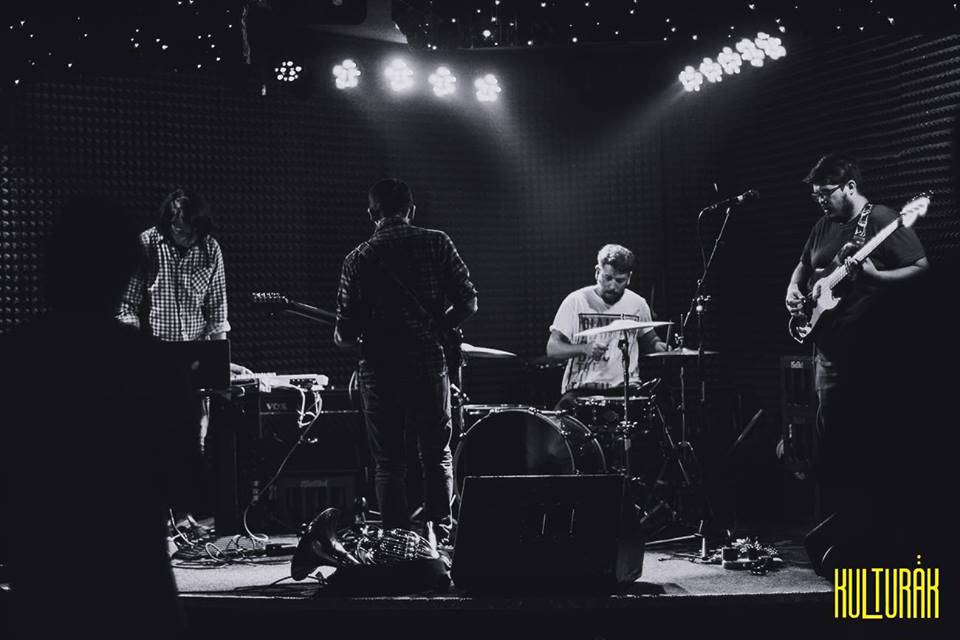
Like the aforementioned emya, this band shares membership with blien vesne, and they exist more in the post-hardcore/post-rock realm. They strike an effective balance between attractive passages of ambience and engulfing walls of high-volume, anguished release, with some scattered electronic flourishes. When the two pathways meet somewhere in the middle, such as the climax of “40; 5; 44” from their second LP Los Mapas Del Fuego, it’s a glorious thing to behold – the kind of emotionally-charged outpouring that brought so many of us to this genre to stay.
Puerto Austral (Buenos Aires)
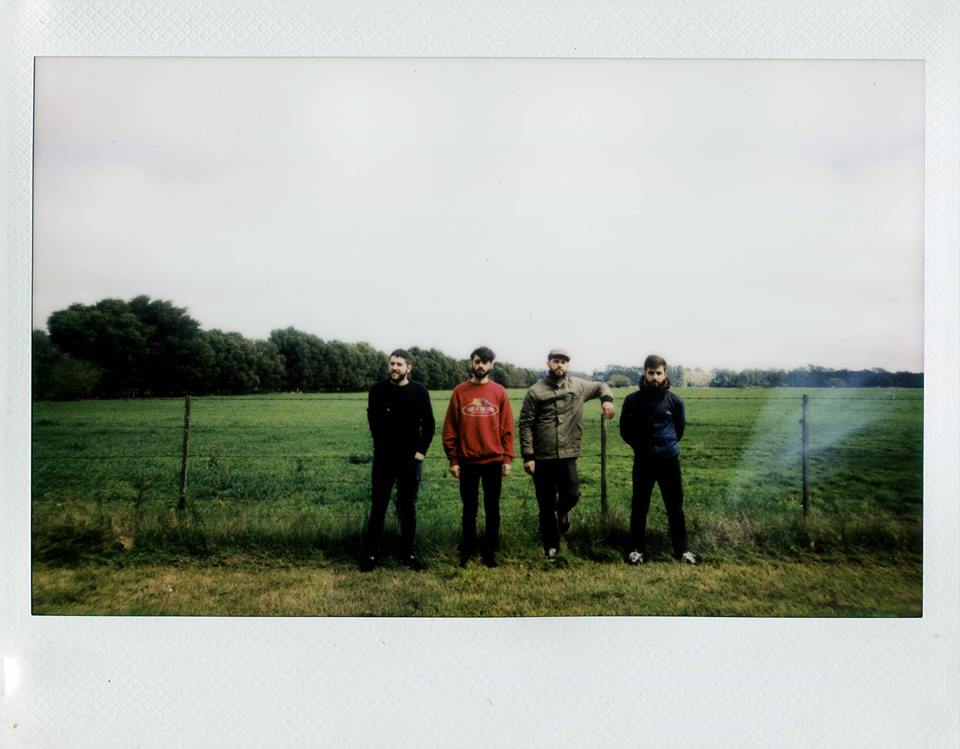
This is that special kind of math rock that shares a trembling, poignant vulnerability with second-wave and modern emo. There are flirtations with finger-tapping and offbeat rhythms, but showiness is not the name of the game here; rather, Puerto Austral cuts right to the heart of its listeners with affecting melodic sensibilities, evocative textures and even some starry-eyed gang vocals. The trumpet on the “Koshkil,” the closing track on their newest release, was provided by Francisco Giordano of the previously mentioned ELCO.
TOTS (Buenos Aires)
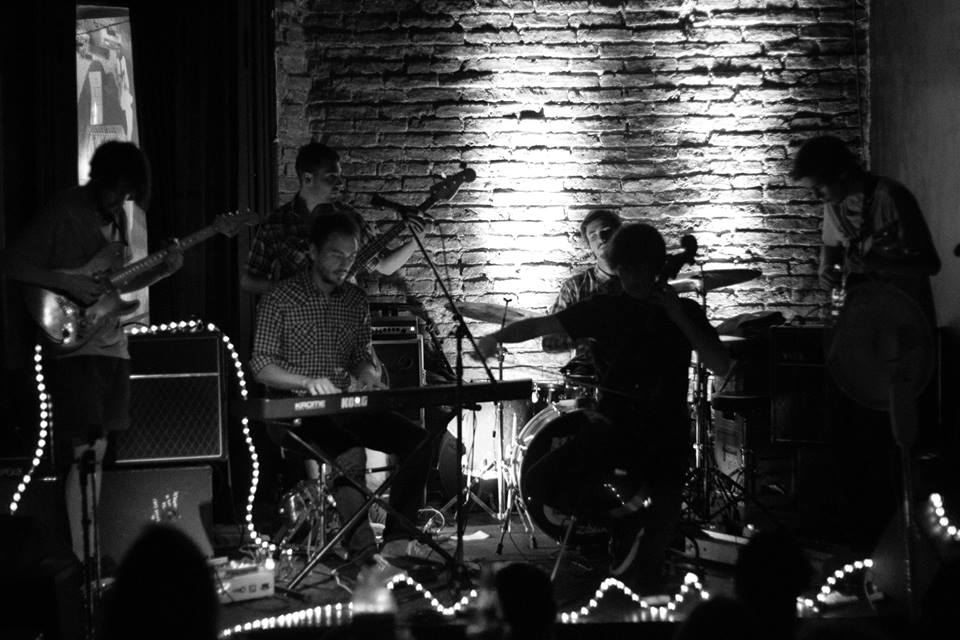
When they released their first EP two years ago it was clear that Transmigration of the Soul (aka TOTS) was onto something, though the jazzy math-rock template they were working from produced some occasional mixed results. However, it seems they have found the path on their newest release el tiempo pasa mas rapido en la montana, which settles into a wonderful sweet spot at the crossroads of math, prog and post-rock. It’s their command of pop sensibilities that seals the impact of this album, best witnessed on “Mt. Fuji,” which deftly balances initial guitar and piano melodies that are built for the big-time against more spastic math experimentation, with transitions between the two that are impressively seamless. It’s smooth and pretty without being too clean, a tightrope that many math-leaning bands fall to the wayside of. This is a young band with plenty of opportunity for growth that should be considered a name to keep an eye on going forward.
BRAZIL:
Kalouv (Recife)
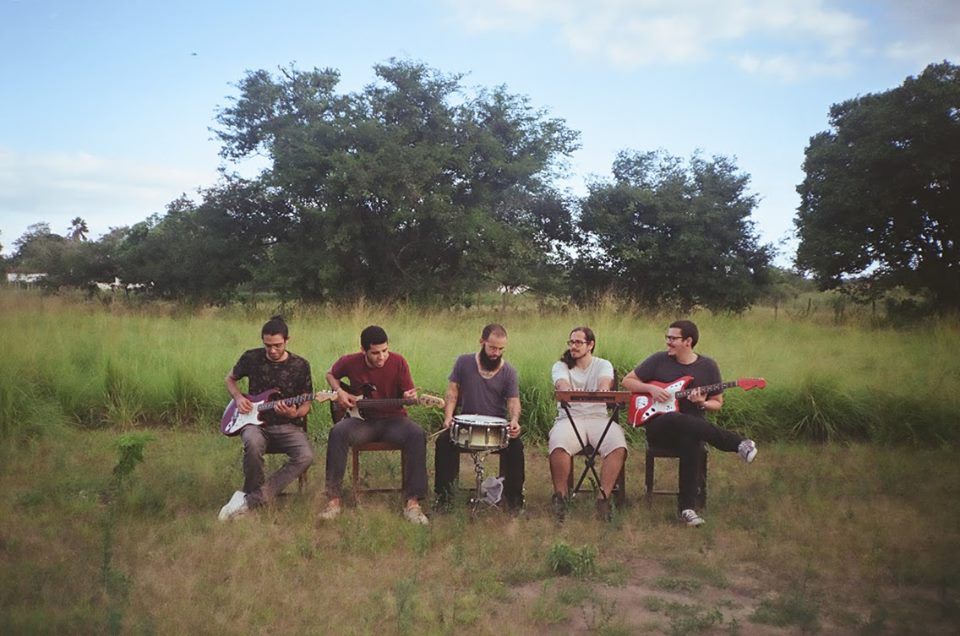
After several years of writing more traditional post-rock songs, Kalouv began to integrate a wide range of varying elements on their October 2018 release Ela, including more synth and electronic elements, jazzy space-rock, and an overall heightened pop influence. “Hotline Miami” is a great example of the expansions the band has made to their sound, coming off like the soundtrack to an amalgamation of all of your nostalgic recollections of rad ‘80s movies. But even as it nods to certain recognizable themes, as the song progresses it makes its own distinct path, breaking into off-kilter timings as it enters its second half before ultimately opening up for a particularly epic and moving finale. If you’re looking to break from the usual post-rock themes this is certainly a band to investigate. Here’s a discussion I had with keyboardist Bruno Saraiva:
Heavy Blog Is Heavy: Kalouv went in a really intriguing direction with this newest record, folding in a lot of different genre influences. Can you tell us a bit about the writing process and what it’s been like expanding on the post-rock palette a bit?
Bruno Saraiva: We have always tried to explore other genres beyond post-rock. Some years ago, we went to a university podcast to discuss the post-rock genre, what defines it. One thing that we talked is that post-rock isn’t only guitar speeds and dynamic crescendos, although this is explored vastly on the genre. Post-rock is more about creating an atmosphere, building some kind of musical feeling with intensity. This is inspired by so many genres, like classical music, progressive rock, soundtracks (which are one of our biggest influences), ambient music, IDM, etc. But it doesn’t mean it has to stop there.
When we were creating Ela, we were in a state of experimenting throughout the instrumental genres, no longer thinking about making post-rock, but making musical pieces that could tell some kind of story. In that sense, games and movies soundtracks were always an inspiration point. We find that the atmosphere built in these kinds of compositions is something that kinda defines our sound. We actually made a playlist with inspirations from games soundtracks, if anyone wants to check out: https://open.spotify.com/playlist/2M2jSzqqIMsn229fwWM0FU
But it didn’t stop there. We went through vaporwave, jazz, synthwave, chillout, samba, etc. We isolated ourselves in a country house for months and tried to experiment with anything that came into our minds. I recommend this process to any band that wants to break away from how they think about music, try experimenting with ideas you haven’t done before. Maybe you can reach a unique point of view hehe. It is funny because when the album was ready, I couldn’t tell what genre the Ela was. Is it still post-rock? Or did we find other paths to explore? Does it matter anymore?
And even not being able to describe it “properly” anymore, it was a good thing because the feeling is really reaching something that we never imagined, breaching the limits that we had some years ago. We can find a new way of making music we really enjoy and still represent ourselves so much with it, mixing all the old and new elements. It is all there.
HBIH: When you look at the bands that are listed as influences for Kalouv you see artists like Radiohead, Mogwai, Air, Toe, Tortoise, M83. Are there some domestic artists that have inspired you as well? Part of the reason for this piece is to shine a light on a region of the world that seems underrepresented on a global scale. I feel like there has been a lot of amazing music to come from South America that simply doesn’t reach our ears in other parts of the world. I’d be interested to hear some insight into the growth of interest in post-genres from the inside rather than focusing on the external influences.
BS: Haha, actually I only listed foreign bands in the English version of the release because I though nobody would know the Brazilian bands that have musical influence on us. It is funny because here in Brazil we really have a huge music scene, with our own pop music, our own rhythms (oh, we do know rhythms), our own regional music and our own interpretation of world genres, like rock, metal, trap, etc. However, the listeners outside Brazil only know some part of it. The bossa nova, the Rio de Janeiro funk (that has exploded worldwide), samba and chorinho, forró, frevo, etc.
In our state, Pernambuco, we have a long musical memory, going through frevo, brega, maracatu, coco, ciranda, forró, etc (all of these are regional rhythms that hold great esteem in our culture, with festivals and each of them having their own scene).
We had a psychedelic rock scene in the 60’s and 70’s, and a rock movement in the 90’s called Mangue Beat, with bands that have gotten worldwide attention like Nação Zumbi, Alceu Valença, Cordel do Fogo Encantado, Ave Sangria, etc. This scene remains influential until nowadays, being part of our culture and marking Recife as a musical city. All of these have some type of indirect influence in our music. Thinking of our direct influences, I can list Lenine, Rua, Vitor Araújo, Clube da Esquina, Som Imaginário, Mombojó, Hurtmold, Constatina, etc. From these, only Vitor Araújo, Hurtmold and Constatina are instrumental bands with some post-rock touch in it.
HBIH: Most of the bands on this list hail from Argentina and Chile. How is the scene in Recife, and in Brazil as a whole? Do you find a solid amount of support for what you do there or do you have to consistently branch out in order to find an audience?
BS – As I said in the previous question, Brazil has one of the richest musical scenes in the world. We have bands and artists for any genre you can think. Even the more experimental genres have their own spaces, audience and festivals. The instrumental genre is getting space, having at least one spot for this type of music in big festivals, and having some Instrumental Festivals like PIB, Sonido, MIA, Natal Instrumental, etc. Brazil has actually been going through a political and financial crisis for a while, and that caused the music festivals to focus on the Brazilian scene, because getting foreign artists to play here is becoming quite expensive. Also, we have so many great artists in so many genres, that this became an obvious step.
Although we have this industry support, having spaces in festivals and revenues that some years ago would not be possible, we still struggle. Instrumental music is still a niche genre here in Brazil, having really few bands that get a big fanbase, or to a point where their career is stable and everyone can say they live only with their music. For now, I can only remember Bixiga 70, an afrobeat bigband that kinda reached this point. Maybe it is slowly changing. It is part of our imagination that we could have reached this step faster in our career if we were in another country. We have this view that Europe and EUA have a bigger audience for the type of music we make. But maybe is just a fantasy, I don’t know hehe. Maybe we should play in Chile and Argentina soon hehehe.
I think the fact that you guys receive more material from Chile and Argentina is only a reflex of this musical industry moment we are passing through, focusing on the inside. Because we really have many bands that could make to your blog. Thinking out loud: Mahmed, E a terra nunca me pareceu tão distante, máquinas, Huey, Hurtmold, Constatina, ruído/mm, A banda de Joseph Tourton, Macaco Bong, Herod, Astronauta Marinho, Meneio, Ema Stoned, Odradek, Taco de Golfe, Labirinto, Bixiga 70, mais-valia, Aeromoças e Tenistas Russas, etc. Maybe the fact that some of these bands are named in Portuguese make this language limitation, since English is the center of global communication. I’m going to add a playlist here to make it easier hehe. I also recommend checking out the Sinewave netlabel. It is a Brazilian experimental music netlabel that we belong, and there you will find some post-rock, math rock, drone, post-metal, ambient, etc. bands.
Playlist: https://open.spotify.com/playlist/31Qp5ZVa6MLg0rFslmlRQF
Sinewave netlabel: http://sinewave.com.br/artistas/
HBIH: What is one thing you’d want people from other parts of the world to know about music in Brazil, or South America in general?
BS: Our music scene is really big, but it hasn’t reach yet the state of organization that some other regions in the world have. We are getting more and more formalized, but we are still walking towards it. It is always with slow step that walk alongside the economic and political situation, there is no way to ignore that. Our music history is so rich and beautiful that it is such a shame people only now see the tip of the iceberg. I hope we can pass this self-centered moment and have more of a dialogue with the world, because we have so much to contribute musically. Even the dialogue with neighboring countries is a little limited, but we are slowly getting there. I hope this interview get more people to know the scene in Brazil and South America, and see that we have being making great music that people don’t know about.
Even big artists here in Brazil must work really hard to get an audience in other countries. There are few bands here in Brazil that can have the financial viability and audience to make tours in US and Europe. Maybe the language is a big barrier to cross. Maybe it is a general misconception of what Brazilian music is and can be. But we are slowly getting the world to know us better.
To end it, I would like to congratulate Heavy Blog is Heavy for giving space for other music scenes around the world. You guys are the best!
Labirinto (Sao Paolo)
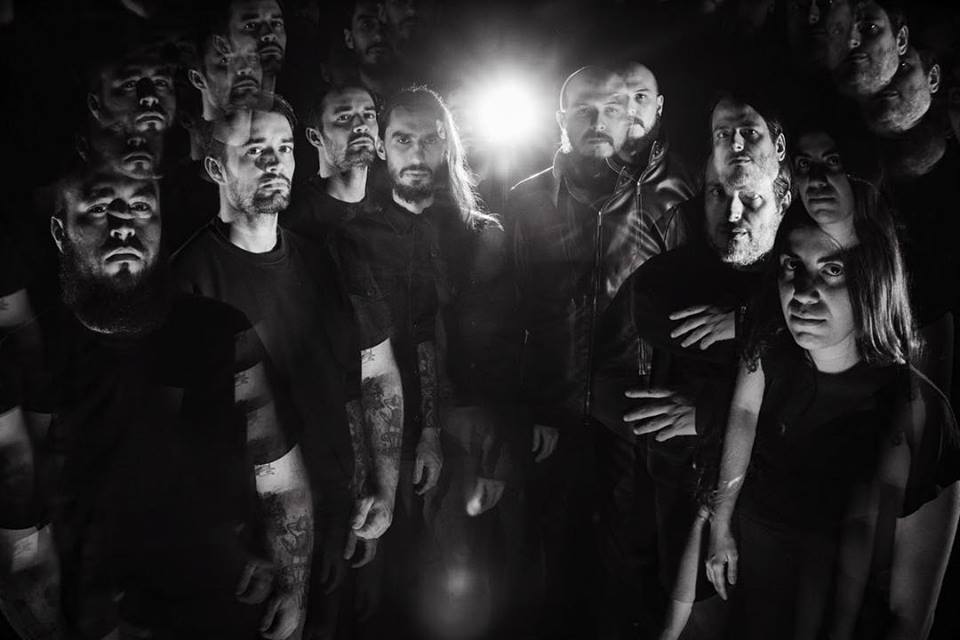
Certainly the most well-recognized and storied name on this list, Labirinto has been at it for over a decade, and recently signed to Pelagic Records, sealing their status as a name on the global post-metal scene. They’ll be making their second appearance at dunk!festival this year, with a main stage placement that makes a lot of sense when you consider the fact that, of all the bands on this list, they are the most prototypically Euro-sounding. Huge soundscapes rife with sweeping dramatics and crushing darkness are the order of the day. As they reach their crescendos Labirinto achieve towering, triumphant heights, but there is little relief from the oppressive atmospheres they craft; this is a band dedicated to conveying persistent intensity, and they can swing that hammer with the best of them.
Come back tomorrow to find the second part of our exploration of the wide world of Latin American post-rock, featuring a slew of bands from the musical hotbed of Chile and a few recommendations from Central America!